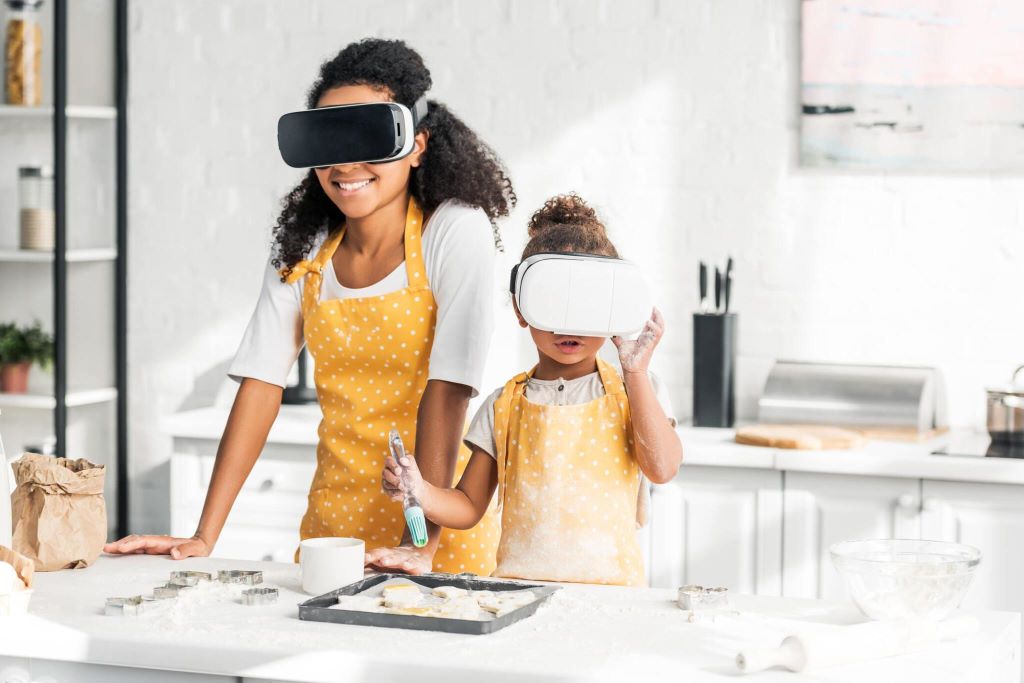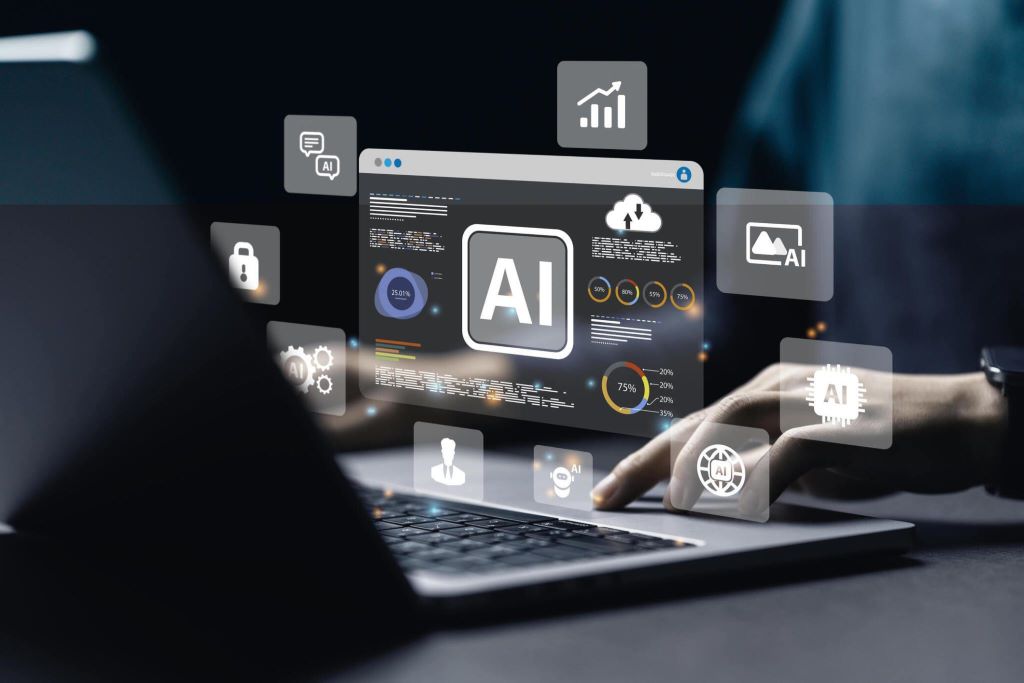Lately there has been a shift in the realm thanks to technological progress. Cooking classes, which used to be limited in availability, are now gaining traction providing both budding chefs and cooking enthusiasts with a hands-on and engaging way to learn.
By incorporating cutting edge technologies these classes have transformed the landscape of education making it easier, more enjoyable and more impactful, for learners.
The Progression of Online Cooking Classes
Discover the changing world of Virtual cooking classes ranging from traditional recipe guides, to sessions that reflect advancements in technology and evolving culinary tastes in the digital sphere.
Embracing the Digital World
Experience how embracing the landscape can reshape industries, communication and everyday life through connectivity, innovation and adaptability.
- E Learning Platforms: Various digital platforms, like Udemy, Coursera and Master Class offer a selection of cooking classes tailored to different expertise levels, culinary styles and dietary choices.
- Social Media and Streaming Channels: Platforms like YouTube, Twitch and streaming services such as Netflix provide a wealth of cooking tutorials, demos and culinary content that can be accessed by people

Engaging Educational Tools
Unleash the potential of learning tools that transform experiences with personalized content, immersive technologies and engaging interfaces that spark curiosity and facilitate knowledge acquisition across various fields.
- Live Streaming and Video Calls: Real time cooking demos and interactive workshops held on streaming platforms allow participants to interact with instructors, ask questions and get feedback.
- Virtual Reality (VR) and Augmented Reality (AR): VR experiences and AR enhancements enrich the learning process by offering simulations, 3D visuals and interactive guides that enable learners to practice skills and experiment with ingredients, in a digital setting.
Personalized Learning Experiences
Embark on a personalized learning journey with tailored curricula, adaptive feedback systems and customized paths that empower learners to excel and master any subject or skill.
- Tailored Learning Paths: Through the use of algorithms, individual data and preferences are analyzed to offer personalized course suggestions, adjust lesson plans and deliver custom feedback enhancing the learning experience for each person.
- Flexible Curriculum Options: Learners have the freedom to shape their learning journey by selecting from a range of course structures and modular content based on their interests, objectives and availability.
Advantages of Virtual Cooking Classes Enhanced by Technology
Explore the benefits of cooking classes enhanced by technology as they transcend boundaries to offer diverse recipes, interactive experiences and real time guidance for aspiring chefs worldwide.

Accessibility and Inclusivity
Witness accessibility and inclusivity in action as technological progress removes barriers to provide opportunities and varied perspectives, across aspects of life and society.
- Global Reach: Virtual cooking classes break down barriers allowing people, from all corners of the world to access their culinary education no matter where they are.
- Inclusive Learning Environment: Online platforms cater to learning styles, preferences and accessibility requirements ensuring that individuals with disabilities or specific needs can actively engage in the learning journey.
Convenience and Flexibility
immerse yourself in a world of convenience and flexibility where modern lifestyles are supported by solutions that enable individuals to make choices in their personal and professional pursuits.
- Flexible Learning: With on demand course materials and pre recorded tutorials learners have the freedom to study at their pace integrating lessons into their schedules and balancing education with their other obligations.
- Self Paced Progress: The option for flexible pacing empowers learners to move through courses at a speed that suits them best, revisiting topics or advancing to complex subjects as desired.
Engaging Interactive Features
Embark, on a journey filled with features that make the experience engaging. These dynamic elements enrich user experiences encouraging participation and exploration across digital platforms and interactive media.
- Practical Learning Opportunities: Virtual cooking classes provide hands-on practice opportunities for participants to hone their skills by trying out techniques experimenting with ingredients and receiving guidance in an online setting.
- Building a Learning Community: Online platforms like forums, discussion boards and social media groups create a sense of camaraderie among learners fostering collaboration, knowledge exchange and peer support.
Emerging Trends and Advancements
Delve into the trends and advancements that shape industries, driven by innovation. The future landscape is being transformed by cutting edge technologies, new approaches and innovative ideas.
Embracing Smart Kitchen Innovations
Experience a revolution in cooking by embracing kitchen innovations that seamlessly blend technology with cooking methods. This integration enhances efficiency, precision and creativity in today’s scene.
- Smart Kitchen Devices: The integration of kitchen gadgets, like ovens, sous vide tools and precise cookers enhances cooking experiences by automating tasks ensuring accuracy and allowing for remote control and monitoring.
- Internet of Things Connectivity: The compatibility between kitchen appliances and IoT devices enables data sharing, synchronization of recipes and personalized suggestions fostering an effective cooking environment.
Utilizing Artificial Intelligence and Data Analysis
Unlock the power of AI intelligence and data analysis to drive decision making processes effectively. Advanced algorithms provide insights that optimize operations and create opportunities, across various industries.

- Personalized Recipe Suggestions: AI driven recommendation systems analyze user preferences, dietary needs and cooking behaviors to provide tailored recipe ideas, ingredient alternatives and customized cooking methods based on tastes.
- Data Driven Insights: Predictive models use data insights along with user feedback to predict learner requirements. By recognizing learning patterns effectively they optimize course delivery, for a learning journey.
Engagement through Gaming and Practical Learning
Immerse yourself in gaming and practical learning to engage with content while having fun. These immersive experiences combine entertainment with lessons to promote skill development, critical thinking and real world application in settings.
- Interactive Learning Experiences: Elements of gamification such as challenges, quests and rewards bring an aspect to cooking classes by motivating learners through friendly competition and boosting engagement.
- Practical Simulations: Immersive simulations and virtual kitchens replicate life cooking situations offering learners a chance to hone their skills, experiment with techniques and troubleshoot issues in a risk free setting.
Conclusion
In summary it is clear that technology has greatly changed the way virtual cooking classes operate, completely transforming the methods through which individuals acquire, practice and excel in the arts. Through the use of platforms, interactive resources and personalized learning opportunities these classes provide accessibility, convenience and involvement allowing people to delve into their cooking interests and express their creativity in the kitchen.



